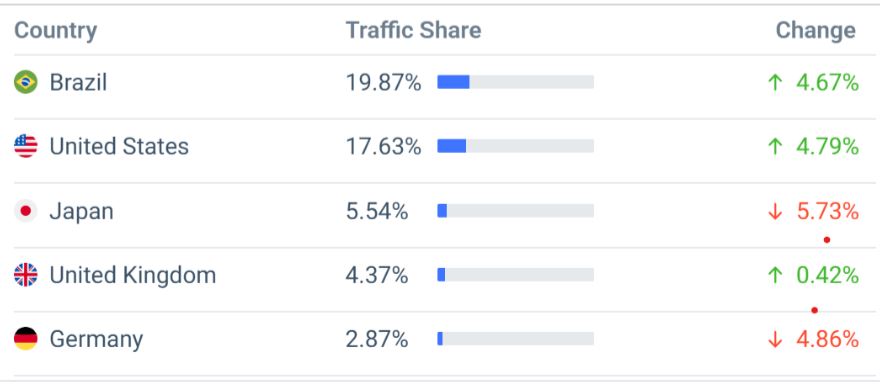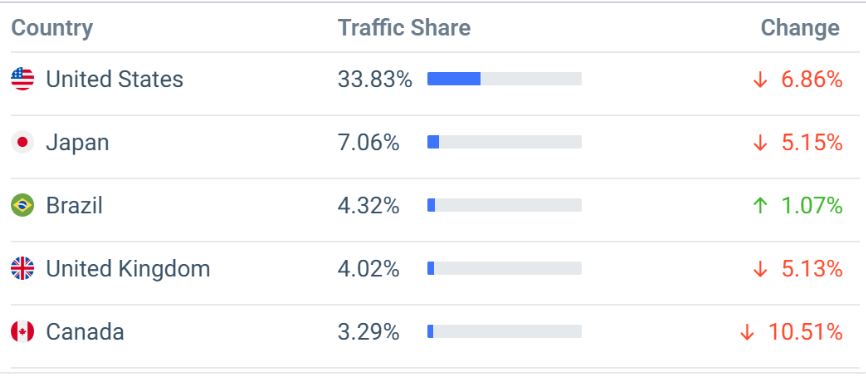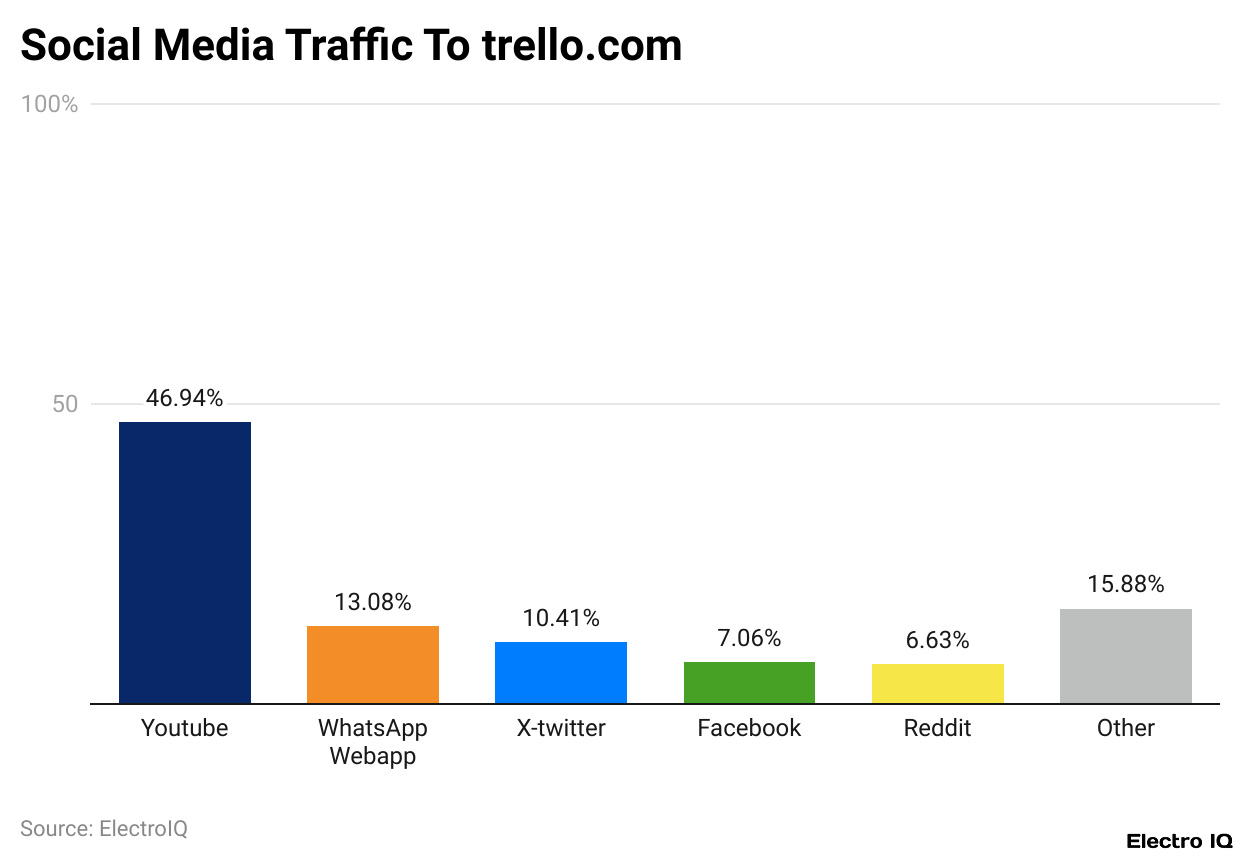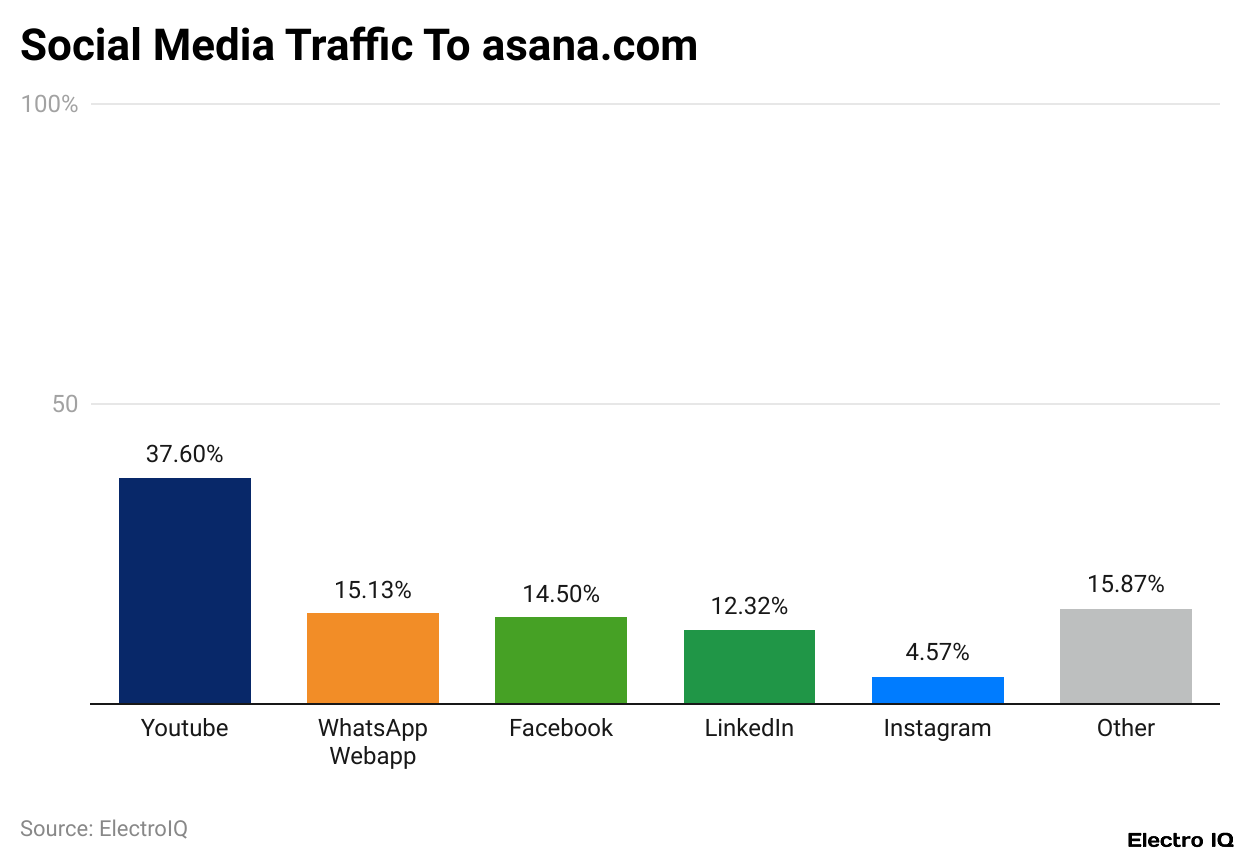Trello vs Asana Statistics By Visitors, Web Traffic And Facts (2025)
Using raw numbers, percentages, and straightforward breakdowns, you’ll be guided toward which may better suit your needs, whether it’s for working on projects alone or conducting an enterprise workflow.

(Source: similarweb.com)

(Source: similarweb.com)

(Source: similarweb.com)

(Source: similarweb.com)

(Source: similarweb.com)

(Source: similarweb.com)

(Reference: similarweb.com)

(Reference: similarweb.com)

(Source: similarweb.com)

(Source: similarweb.com)
Conclusion
Trello vs Asana Statistics: In 2024, Trello and Asana continue to serve distinct yet overlapping audiences. The market share of Trello is higher (1.51% vs 1.13%). On the contrary, being less in numbers but highly featured, Asana caters to large teams and enterprises with better workflow automation and governance, collaboration that goes on to justify its Premium tier of US$10.99 per user.
Both have average ratings of 4.5/5, but Trello boasts a larger number of users. Ultimately, it depends on your project requirements: opt for Trello if it’s simple; for advanced and complex projects, use Asana.
What platform got more web traffic in May 2024: Trello or Asana?
Trello had much higher web traffic in May 2024, averaging close to double the weekly visitors that Asana would get. Trello also hit a peak at 18.53 million weekly visitors, considerably ahead of Asana’s best at 8.91 million visitors. Overall, Trello kept a 2:1 visitor ratio to Asana throughout the month.
What are the key differences in audience demographics between Trello and Asana?
Trello’s crowd is skewed younger and male, with 56.73% males and 55.35% under 35 years old. Asana’s users are 52.98% female and have more people in the 35-and-above range, so they are more broadly accepted at the pro and enterprise team levels.
Price and feature-wise, how do Trello and Asana compare?
When it comes to price, Trello is the cheaper of the two, billed at US$5/user/month. It is perfect for people or small teams who must engage in basic tracking of projects. Asana starts at US$10.99/user/month and provides more sophisticated tools, like timeline views, task dependencies, and workload management. This makes it suitable for bigger teams and complex projects.
Which countries drive the most traffic to Trello and Asana?
Trello has its largest market in Brazil at 19.87%, growing actually in Latin America, and next in the U.S. at 17.63%. For Asana, the U.S. remains the main market, though it saw a decline in May 2024 in U.S. traffic; Japan is a significant market for both as well, but it has seen a drop in engagement.
How was Asana’s Q4 FY2024?
Asana managed to improve its financial condition by lowering its GAAP operating loss to US$67.9 million, up from US$99.2 million YOY; meanwhile, the net loss on a non-GAAP basis was down to US$10.1 million from US$33.2 million. Free cash flow loss at –US$17.0 million also improved under cost controls and enhanced financial position.

Joseph D'Souza
Joseph D'Souza founded ElectroIQ in 2010 as a personal project to share his insights and experiences with tech gadgets. Over time, it has grown into a well-regarded tech blog, known for its in-depth technology trends, smartphone reviews and app-related statistics.













